Filter by
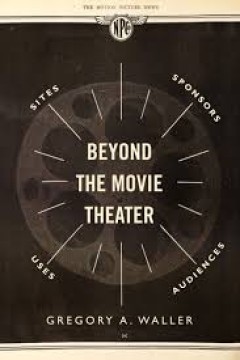
Beyond the Movie Theater
Beyond the Movie Theater excavates the history of non-theatrical cinema before 1920, exploring how moving pictures were used in ways distinct from theatrical cinema. Looking away from the glimmer of the theater screen and stepping outside the light of the marquee, Beyond the Movie Theater reveals that sponsored moving pictures were put to a variety of uses and screened at a host of sites, targe…
- Edition
- -
- ISBN/ISSN
- 9780520391505
- Collation
- 321
- Series Title
- -
- Call Number
- -
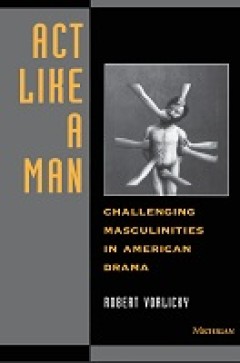
Act Like A Man
In the first comprehensive study of plays written for male characters only, Robert Vorlicky offers a new theory that links cultural codes governing gender and the conventions determining dramatic form. Act Like a Man looks at a range of plays, including those by O'Neill, Albee, Mamet, Baraka, and Rabe as well as new works by Philip Kan Gotanda, Alonzo Lamont, and Robin Swados, to examine how di…
- Edition
- -
- ISBN/ISSN
- 9780472221561
- Collation
- oer.unej.ac.id
- Series Title
- -
- Call Number
- -
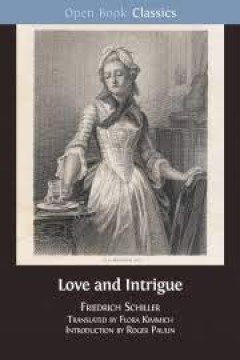
Love and Intrigue
"Schiller’s play Kabale und Liebe, usually translated into English as Love and Intrigue, represents the disastrous consequences that follow when social constraint, youthful passion, and ruthless scheming collide in a narrow setting. Written between 1782 and 1784, the play bears the marks of life at the court of the despotic Duke of Württemberg, from which Schiller had just fled, and of a fra…
- Edition
- -
- ISBN/ISSN
- 9781783747405
- Collation
- 120 halaman
- Series Title
- Open Book Classics
- Call Number
- 700 SCH l
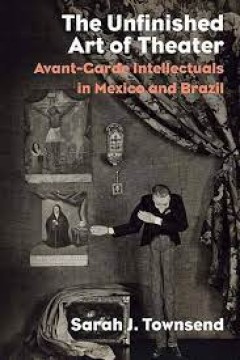
The Unfinished Art of Theater Avant-Garde Intellectuals in Mexico and Brazil
The avant-garde posits the possibility of total rupture with the past. This book pulls back on this futuristic impulse by showing how theater became a key site for artists on the edge of capitalism to reconfigure the role of the aesthetic between 1917 and 1934. The book argues that this “unfinished art”—because of its weakness as a representative institution in Mexico and Brazil, where th…
- Edition
- -
- ISBN/ISSN
- 9780810137400
- Collation
- -
- Series Title
- -
- Call Number
- -
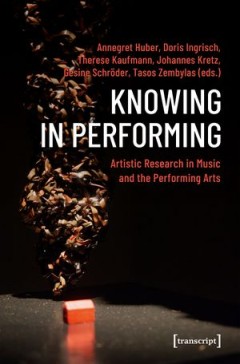
Knowing in Performing: Artistic Research in Music and the Performing Arts
How can performing be transformed into cognition? Knowing in Performing describes dynamic processes of artistic knowledge production in music and the performing arts. Knowing refers to how processual, embodied, and tacit knowledge can be developed from performative practices in music, dance, theatre, and film. By exploring the field of artistic research as a constantly transforming space for pa…
- Edition
- 1
- ISBN/ISSN
- 9783839452875
- Collation
- -
- Series Title
- -
- Call Number
- 792 KNO k
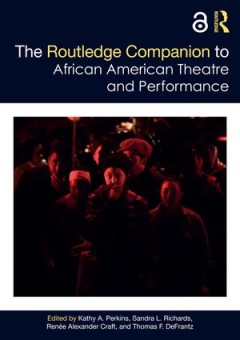
The Routledge Companion to African American Theatre and Performance
The Routledge Companion to African American Theatre and Performance is an outstanding collection of specially written essays that charts the emergence, development, and diversity of African American Theatre and Performance—from the nineteenth-century African Grove Theatre to Afrofuturism. Alongside chapters from scholars are contributions from theatre makers, including producers, theatre mana…
- Edition
- 1
- ISBN/ISSN
- 9781351751445
- Collation
- -
- Series Title
- -
- Call Number
- 812 ROU r
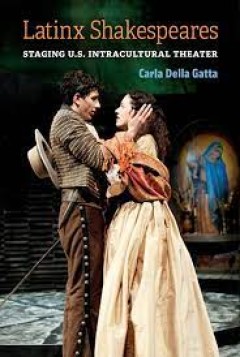
Latinx Shakespeares Staging U.S. Intracultural Theater
Latinx peoples and culture have permeated Shakespearean performance in the United States for over 75 years—a phenomenon that, until now, has been largely overlooked as Shakespeare studies has taken a global turn in recent years. Author Carla Della Gatta argues that theater-makers and historians must acknowledge this presence and influence in order to truly engage the complexity of American Sh…
- Edition
- -
- ISBN/ISSN
- 9780472903740
- Collation
- -
- Series Title
- -
- Call Number
- -
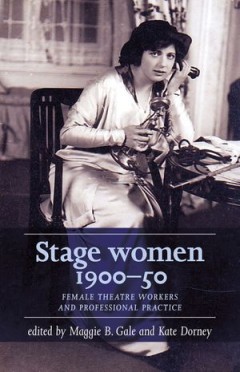
Stage women, 1900–50
Stage women, 1900–50 explores the many ways in which women conceptualised, constructed and participated in networks of professional practice in the theatre and performance industries between 1900 and 1950. A timely volume full of original research, the book explores women’s complex negotiations of their agency over both their labour and public representation, and their use of personal and p…
- Edition
- -
- ISBN/ISSN
- 9781526147271
- Collation
- -
- Series Title
- -
- Call Number
- -
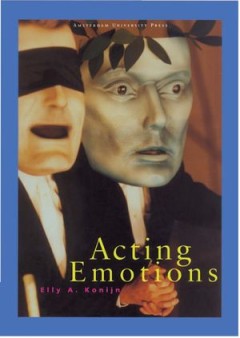
Acting Emotions
Actors and actresses play characters such as the embittered Medea, or the lovelorn Romeo, or the grieving and tearful Hecabe. The theatre audience holds its breath, and then sparks begin to fly. But what about the actor? Has he been affected by the emotions of the character he is playing? What's going on inside his mind? The styling of emotions in the theatre has been the subject of heated deba…
- Edition
- -
- ISBN/ISSN
- 9789053564448
- Collation
- -
- Series Title
- -
- Call Number
- -
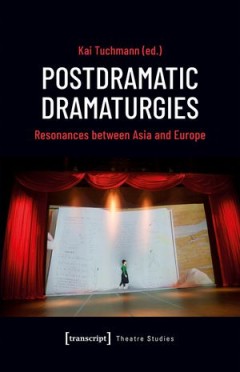
Postdramatic Dramaturgies: Resonances between Asia and Europe
This book compiles lectures by the world's leading practitioners of postdramatic theatre from East Asia and the German-speaking world, which were given at Asia's only dramaturgy degree program at The Central Academy of Drama in Beijing 2018/19. It includes first-time English-language scripts of the discussed plays. The material is complemented by contextualizing essays by the program founder Li…
- Edition
- -
- ISBN/ISSN
- 9783839459973
- Collation
- -
- Series Title
- -
- Call Number
- 792 POS p
 Computer Science, Information & General Works
Computer Science, Information & General Works  Philosophy & Psychology
Philosophy & Psychology  Religion
Religion  Social Sciences
Social Sciences  Language
Language  Pure Science
Pure Science  Applied Sciences
Applied Sciences  Art & Recreation
Art & Recreation  Literature
Literature  History & Geography
History & Geography